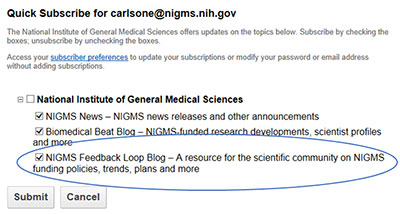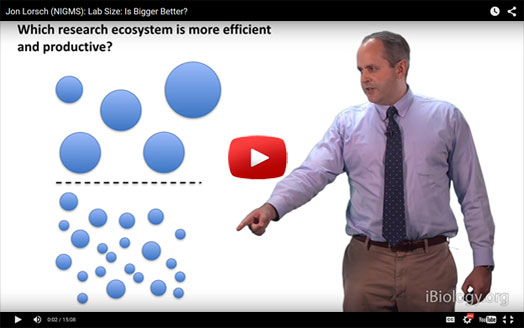 I’m pleased to announce that Stephanie Constant will be joining us in early 2017 as the new chief of our Office of Scientific Review.
I’m pleased to announce that Stephanie Constant will be joining us in early 2017 as the new chief of our Office of Scientific Review.
Stephanie is currently a scientific review officer at NIH’s National Heart, Lung, and Blood Institute, where her review portfolio is primarily focused on training and career development programs to promote diversity in the biomedical workforce. She also worked on detail in NIH’s Office of Extramural Research, where she contributed to developing and updating policy guidelines to enhance the NIH peer review process. Prior to joining NIH, she was a tenured associate professor in the Department of Microbiology, Immunology and Tropical Medicine at George Washington University. Her research included studies on the regulation of leukocyte migration in acute and chronic inflammation and on the mechanisms of immunomodulation by parasite products.
Stephanie’s deep knowledge of NIH review policies and practices and expertise in the review of training and diversity grant applications make her an ideal fit for this key position in our Institute. Please join me in welcoming her to NIGMS.
For more about Stephanie, see our news announcement.


 I’m very pleased to announce the selection of Rochelle Long as director of our
I’m very pleased to announce the selection of Rochelle Long as director of our  Helen Sunshine, who led the NIGMS Office of Scientific Review (OSR) for the last 27 years, retired in April. Throughout her career, she worked tirelessly to uphold the highest standards of peer review.
Helen Sunshine, who led the NIGMS Office of Scientific Review (OSR) for the last 27 years, retired in April. Throughout her career, she worked tirelessly to uphold the highest standards of peer review. Ever since the NIGMS Feedback Loop launched in 2005, we’ve sent periodic digests of its content to our grantees, applicants and others. To help our readers receive time-sensitive information sooner, we’re now offering a way to get individual posts as they’re published on the blog.
Ever since the NIGMS Feedback Loop launched in 2005, we’ve sent periodic digests of its content to our grantees, applicants and others. To help our readers receive time-sensitive information sooner, we’re now offering a way to get individual posts as they’re published on the blog. I’m very pleased to announce that Dorit Zuk will be joining us in early 2016 as the new director of our
I’m very pleased to announce that Dorit Zuk will be joining us in early 2016 as the new director of our 
